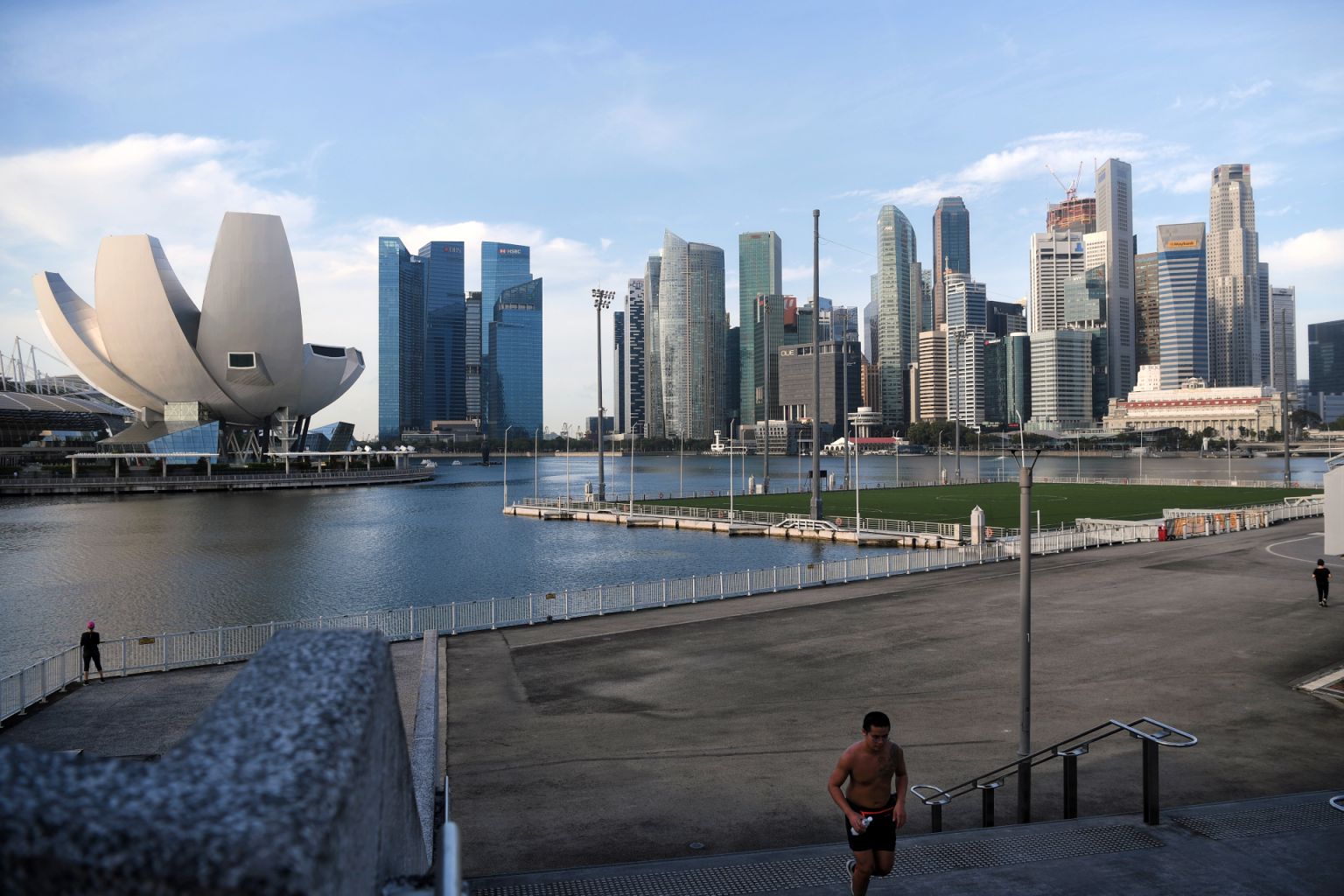Good chance S'pore can achieve 6% growth this year: PM Lee
Sign up now: Get ST's newsletters delivered to your inbox

Singapore's economic outlook going forward has brightened considerably, said PM Lee Hsien Loong.
ST PHOTO: KUA CHEE SIONG
SINGAPORE - There is a good chance that Singapore can achieve 6 per cent growth or better this year, but this will only take the country back to where it was before Covid-19 struck, Prime Minister Lee Hsien Loong said on Saturday (May 1).
Singapore's workers must grow new muscles, seize new opportunities and prepare themselves for life after Covid-19 through training and skills upgrading, PM Lee said in his May Day Rally speech.
Noting that the global recession has been less protracted than initially feared, he said Singapore's economic outlook going forward has brightened considerably.
While Europe is still struggling to contain the virus, the United States is expected to make a strong recovery this year on the back of a large stimulus package and good progress made in vaccinating its population. China's economy is performing strongly too, PM Lee added.
"These external trends give us confidence in our own prospects," he said.
"Earlier, MTI (Ministry of Trade and Industry) forecasted that we would make 4 per cent to 6 per cent growth this year. Barring a setback to the global economy, and provided our domestic Covid-19 situation remains stable, there is a very good chance we can achieve 6 per cent or better this year."
However, PM Lee noted that challenges remain for sectors like aviation and tourism, which will not recover soon.
He also paid tribute to the efforts and sacrifices of workers in Singapore who have helped the nation keep Covid-19 under control.
He thanked healthcare workers on the front line, who have been testing, vaccinating and treating patients, for their dedication and courage.
He also thanked aviation workers and construction workers, while noting that workers in other sectors have been affected by Covid-19 too.
PM Lee said the Government has provided relief and grants throughout the crisis, with $50 billion drawn from Singapore's past reserves to help businesses and workers.
"This is unprecedented, but as the economy recovers, we have to recalibrate our support to a more sustainable level," he said.
While many union leaders have asked for the Jobs Support Scheme to be extended further, PM Lee said the scheme is an "artificial life support".
He said: "It keeps us breathing for a while, but it cannot last forever. We must still find a way to fully recover, get back on our feet, and build new muscles."
PM Lee also highlighted three trends which the pandemic has accelerated - digitalisation, automation and sustainability - and which Singapore must be ahead in, to seize emerging opportunities and create new and better jobs.
For instance, many hawkers who previously did not see the need for digitalisation were forced to go online during the circuit breaker period, he noted.
Now, more than 1,300 hawkers offer some form of online ordering and delivery, and more then half of all hawkers have adopted e-payment services.
PM Lee also cited the example of the pet supplies chain Pet Lovers Centre, which had to close all 70 of its retail stores during the circuit breaker.
To cope with a surge in online orders, Pet Lovers Centre developed a new system to track inventory and upgraded its warehouse with a new automated storage and retrieval system, with support from Enterprise Singapore.
Said PM Lee: "That is automation, and it's helped the company. Pet Lovers Centre had its productivity and its warehouse capacity more than double. It's made sure to put itself into a stronger position to ramp up its business when the economy picks up."
Staff morale has also gone up because employees have picked up new skills, become more productive and are paid more, he added.
On sustainability, PM Lee gave the example of Sunseap, a clean energy solutions provider based in Singapore which is installing one of the Republic's largest floating solar farms in the Strait of Johor off Woodlands.
He said installing solar panels is a skilled, technical job that pays quite well, but it is hard outdoor work that is done under the sun, mostly by foreign workers.
Faced with a manpower crunch amid the pandemic, Sunseap redesigned the job and trained young Singaporeans to take up jobs as solar technicians and engineers.
"It helped that young Singaporeans are enthusiastic about climate change and renewable energy, and they know that these fields are going to become increasingly important parts of our economy," PM Lee said.
In order to benefit from these trends, workers will also need the right skills, PM Lee said as he stressed the importance of lifelong learning and urged workers to make use of their SkillsFuture credits.
The Government is investing heavily in the programme and will spend about $1.4 billion on it over the next few years, he added.


